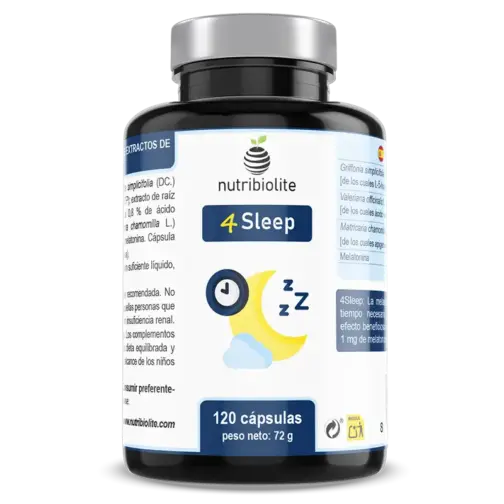A clinical trial published in Scientific Reports 2025(study in Scientific Reports 2025) showed that taking melatonin every night can reduce markers of inflammation and oxidative stress in adults undergoing peritoneal dialysis. In this study, 44 participants received either 5 mg melatonin or placebo for ten weeks. Those who took melatonin showed a significant decrease in compounds related to cell damage and inflammation, such as MDA and hs-CRP protein, compared to the placebo group.
What does this mean for you? Although the participants were people with special medical needs and the dose was higher than the recommended dose for regular use (1 mg), the finding reinforces melatonin’s physiological role as a sleep-wake cycle regulator and protector against daily wear and tear. These results suggest that respecting and supporting the body’s natural rhythms can help not only to sleep better, but also to keep internal processes in balance. However, it is important to remember that the study has limitations: small size, small population and limited duration.
Melatonin, the silent orchestra of your nights
Every nightfall, your body initiates an invisible ritual where dim light signals the brain that it is time to release melatonin. This hormone acts like a conductor: it synchronises organs, adjusts body temperature and facilitates that smooth transition to deep rest. However, everyday factors such as stress, time changes or intensive use of screens can reduce its natural production.
From the age of 40 onwards, endogenous levels fall progressively and after the age of 70 they become almost residual. When this nocturnal signal weakens, falling asleep becomes more difficult and fragmented. That is why current evidence highlights the importance of maintaining consistent routines before bedtime: light dinners, low lighting and avoiding technological surprises are simple but effective allies.
Not just getting to sleep quickly, but maintaining stable sleep
Falling asleep quickly is only part of the process; keeping it stable throughout the night requires a precise biochemical symphony. This is where natural precursors such as 5-HTP, derived from the amino acid tryptophan found in whole foods, come in. The body converts 5-HTP into serotonin – the neurotransmitter of well-being – which is then transformed into melatonin when night falls.
In addition, plant extracts such as valerian and chamomile have been valued for centuries for their relaxing effect on the central nervous system. Their combination helps to create an environment conducive to prolonged rest without dependence or residual drowsiness upon awakening.
4Sleep accompanies your nocturnal physiological cycle
At times when routines lose rhythm – long journeys, sustained stress or hormonal changes – seeking external support can make sense. 4Sleep, developed by Nutribiolite, follows this physiological logic, backed by recent studies and European recommendations. It combines melatonin (1 mg), recognised for its physiological action at safe doses according to European authorities; 5-HTP extracted from Griffonia simplicifolia, which promotes natural serotonin-melatonin synthesis; and standardised extracts of valerian and chamomile, plants with a proven relaxing effect.
While melatonin marks the start of a good night’s rest, the other ingredients support a smooth transition to restful sleep. All without synthetic additives and without the risk of dependency. Thus, 4Sleep accompanies your inner rhythms when you need extra help to regain sleep harmony.

Melatonin 1 mg and 5-HTP with relaxing herbs.
Frequently asked questions about melatonin sleep and healthy night-time habits
How should I take 4Sleep to support my night-time routine?
Take one capsule about thirty minutes before bedtime, always accompanied by a glass of water. Keeping a regular schedule enhances its physiological effect on your internal clock.
Is it better to opt for combined supplements or just melatonin?
Combination supplements such as 4Sleep incorporate melatonin together with natural precursors (such as 5-HTP) and relaxing plants (valerian and chamomile). This supports both rapid onset and stability of sleep throughout the night by following natural pathways already present in your body.
Can it cause residual drowsiness the next day?
Daytime sleepiness does not usually occur if you follow the recommended doses (melatonin up to 1 mg) and maintain good pre-sleep habits. The formula is designed to support biological cycles without interfering with your morning energy.
What is the difference between tryptophan and 5-HTP?
Although both participate in the natural serotonin-melatonin pathway, 5-HTP is more specific because it acts directly on that brain pathway while tryptophan serves other metabolic functions in addition to sleep.
When does it make sense to use a supplement like 4Sleep?
It makes sense to use a supplement like this when your natural sleep rhythm is disturbed by long journeys or prolonged periods of stress or hormonal changes that make it difficult to fall asleep or maintain a stable sleep even after improving your basic night-time habits.
This content is for informational purposes only and is not a substitute for the advice of a healthcare professional.
















